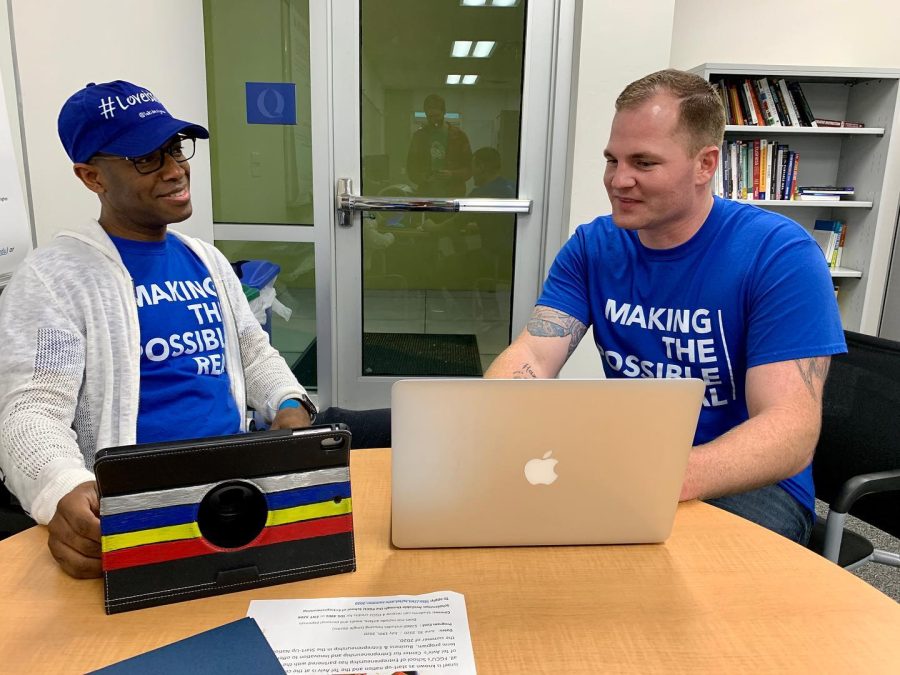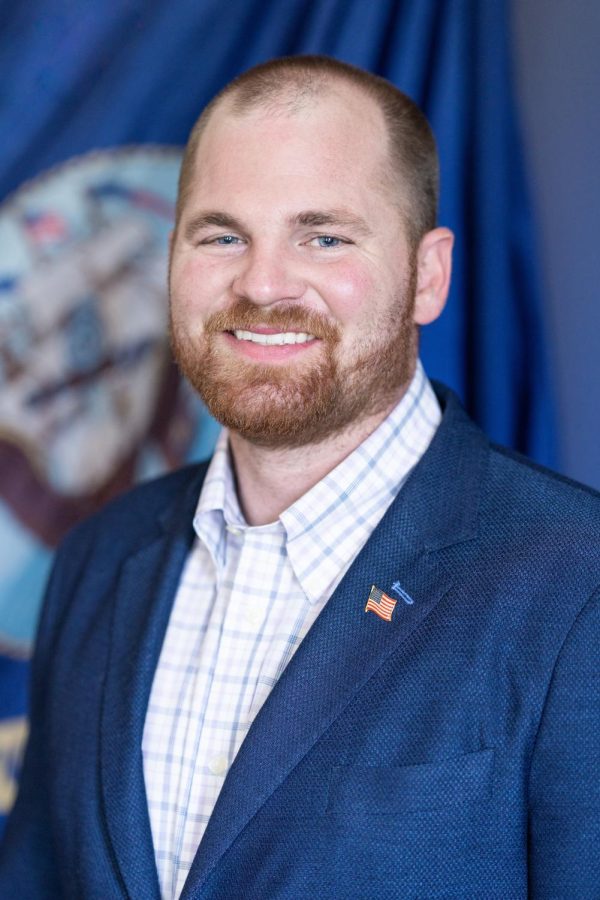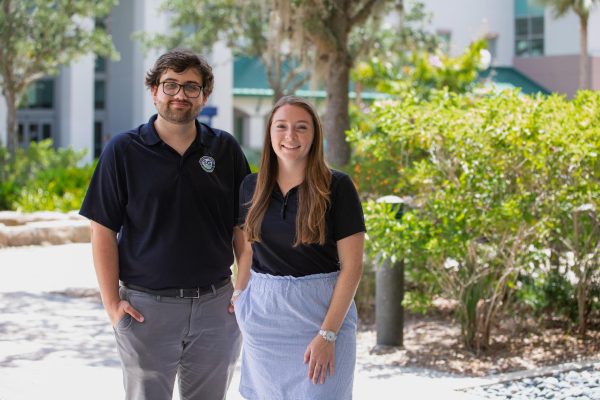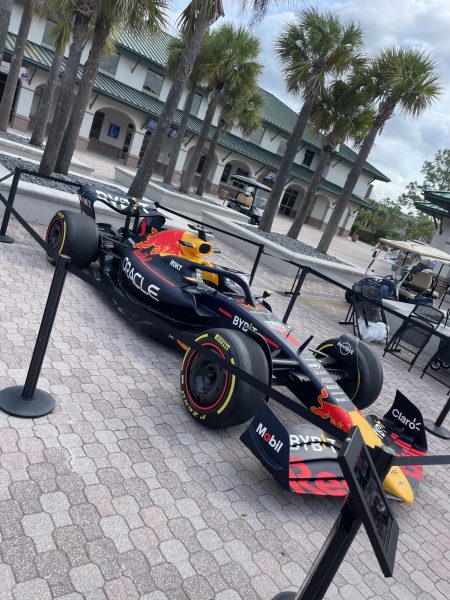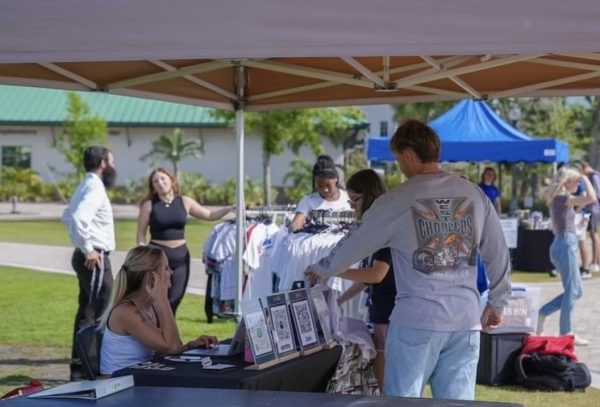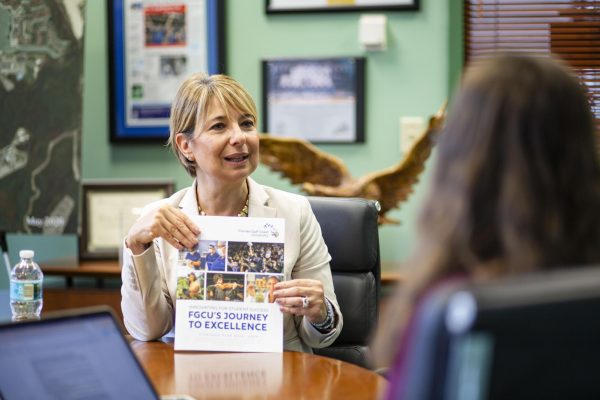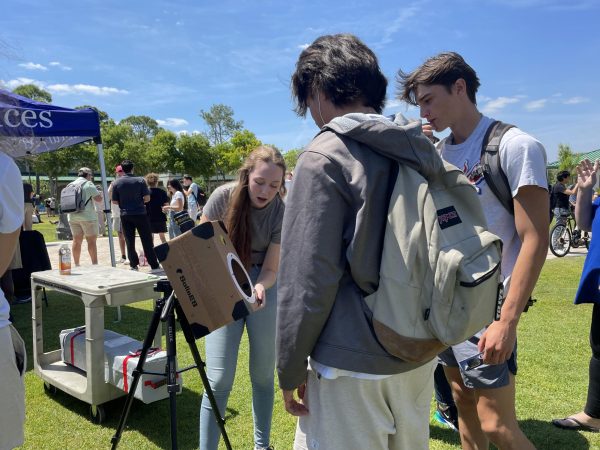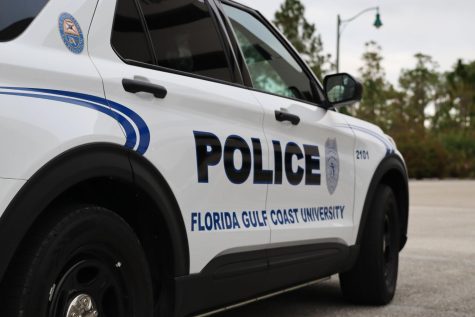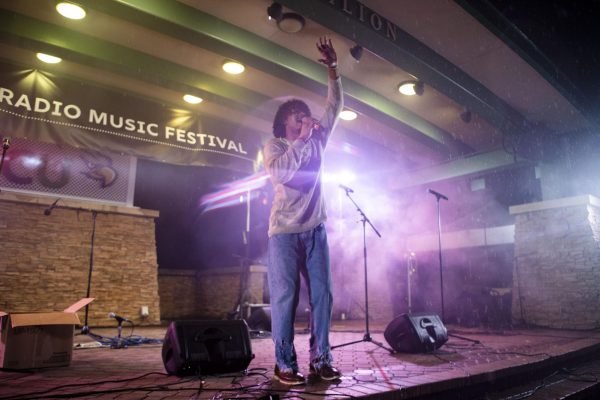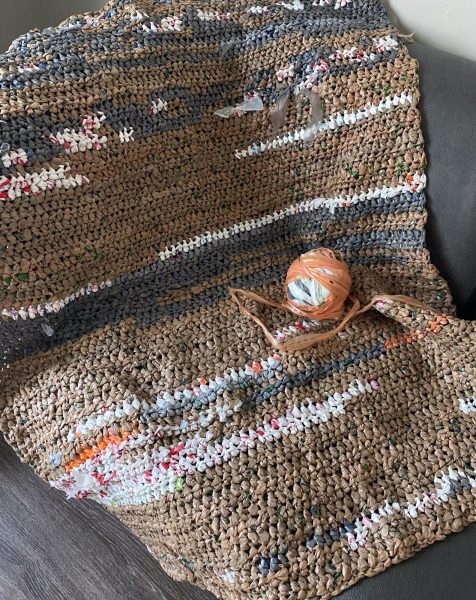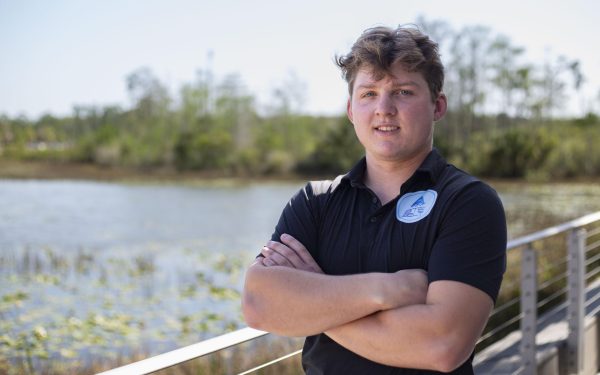Troy Bolivar: Veteran, Leader, Award Winner
Troy Bolivar works with Loki Anthony in the Veterans Florida Entrepreneurship Start-up Program at FGCU. Photo courtesy of Troy Bolivar.
January 24, 2023
Growing up, college was not at the forefront of a Bigfork, Montana native’s mind. Troy Bolivar sported a 2.0 high school GPA, and his family did not have the means to send him to college immediately post-graduation.
Bolivar worked alongside his father in construction to earn money before enlisting in the Navy in 2011, which would enable him to attend a four-year university.
“Going into college, I wanted to prove that I wasn’t an idiot because of my grades in high school.”
The Lutgert College of Business recognized 2019 FGCU graduate Bolivar, who has, in true Eagle fashion, made an impact on our university and community. As a U.S. Navy veteran, and the current Director of Military and Veteran Success at FGCU, Bolivar uses his military experience to advance the careers and lives of the university’s veteran population.
“In the military, you’re living a life where your every move is instructed by somebody else. And then you get out, and you have to figure all this out on your own, and transition to a different lifestyle. It’s all kinds of overwhelming.”
FGCU seeks to honor those who have fully leveraged their college experience to become leaders in their areas of work. Annually, one alumnus from each college is given the FGCU Alumni Award to honor their achievements and showcase the value of an FGCU degree. Of 79 nominated this year, six recipients were crowned, one of which being Bolivar.
Following boot camp, he went to San Antonio, Texas to complete “A” school, the education program used to train Navy Corpsmen for their first assignments. There, he would meet his eventual wife, Shelby, a fellow corpsman. The two started as friends, but kept in contact while apart on other assignments.
“After my friends went away to college, I wasn’t really doing anything productive with my life,” Bolivar said. “A friend of mine’s dad was a corpsman in the military, and he was successful selling medical products, so I thought to do the same.”
In 2012, Bolivar received orders to Naval Hospital Guam. There, he took care of newborns as their mothers recovered from childbirth. He expressed that he was slightly disappointed to not be working in a more stereotypically exciting environment, like the Emergency Room or the Intensive Care Unit, but grew to love seeing happy families instead of death and severe injury.
Bolivar’s path would cross through Camp Pendleton in California, where he would begin his relationship with Shelby. From 2014 to 2016, he worked alongside the First Marine Division, and was a first responder if a marine in his group was injured. To end his active military service, Bolivar served in Australia for six months.
As for what brought Bolivar and his wife to Southwest Florida, his in-laws and a change of scenery guided the couple’s decision. He spent a year at Florida Southwestern State College, and then stumbled upon FGCU as a civil engineering major, but eventually switched to entrepreneurship.
“Before graduating, I started interning with the Veterans Entrepreneurship Program. Right before graduation, I asked my supervisor if they had any full time positions available, because I really liked the mindset that the team had, and they wanted to grow. They wanted to improve. They actually had a position available. I applied, and I ran the program for about two years.”
The goal of the Veterans Entrepreneurship Program is to assist veterans with starting, managing and funding their businesses. Participants are given access to mentoring and workshops to develop skills and opportunities to gain funding. However, Bolivar has not limited his impact on FGCU’s veteran population to just veteran entrepreneurs.
“[Now,] my job is to help veterans have that successful and smooth transition into the university. [I] help them while they’re here, with whatever their needs are and then all the way through until graduation” Bolivar said.
Bolivar made it very clear that he loves to help his students. It means the world to him to make the lives of fellow veteran-academics less riddled with post-military hardships and to give them the tools for success.
“He’s allowed me to professionally develop faster than I would ever have imagined as a college student,” Payton DeMay, senior and coworker of Bolivar, said. “He’s given me different projects that have made me recognize where exactly I want to go in life. Troy has really empowered me to become a better professional and person.”
































